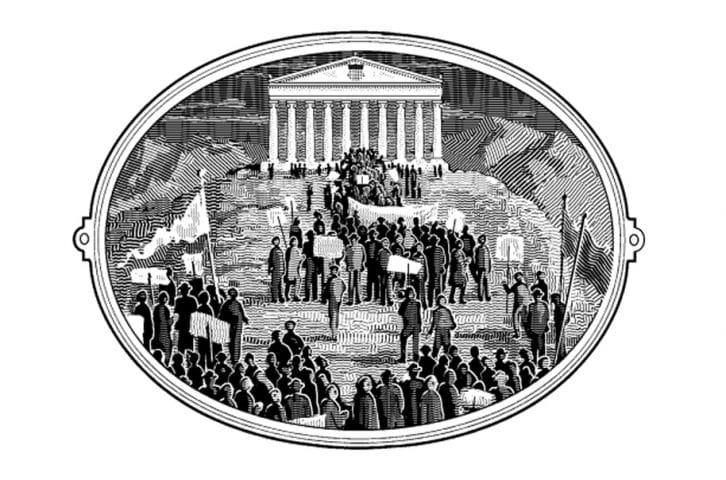Books Reviewed
A review of Death of a Pirate: British Radio and the Making of the Information Age , by Adrian Johns
, by Adrian Johns
Growing up as a teenager in the United Kingdom's swinging '60s, I did not watch television (except at the homes of friends and neighbors) because we did not own one, and besides it offered a choice of two, eventually three, rotten channels. And it was the same on the radio—or wireless, as we called it—where there were just three choices, all from the BBC: the Home Service (news), the Light Programme (entertainment), and the Third Programme (classical music).
Not one of them played any new popular music. Late at night if the atmospherics went my way, I could tune into Radio Luxembourg and listen to the latest releases by the Who, the Kinks, the Beatles, and the Rolling Stones. That was magic. But from summer 1964 to summer 1967 major relief was at hand as "pirate" (i.e., illegal), for-profit, off-shore radio stations encircled our islands, broadcasting from old ships and disused military forts. With no pop music available from the monopoly state broadcaster, it was inevitable that something would give, and the pirates' sudden popularity was much helped by the explosion in sales of transistor radios, or "trannies" as we called them. These wonderful inventions freed us youngsters from depending on that large piece of furniture in the family room that was always under heavy-handed maternal control.
We adored our trannies and our pirate radio. It was liberating. My station was called Caroline. She broadcast from a ship somewhere between North West England and Northern Ireland, close to the Isle of Man. Meeting fellow teens at distant family reunions or the like, the very first question you asked would be which pirate (of the ten or so) do you listen to, leading to a flurry of comparisons and stories. And what stories we had as a completely nonplussed, flat-footed socialist government and its law enforcement officers struggled to figure out what to do about this hugely popular phenomenon. BBC apologists even warned the young not to tune the family radio to Luxembourg or the pirates because it would damage the internal workings of the wireless!
* * *
The pirate movement spawned a political party, the Monster Raving Loony Party, led by minor pop star David Sutch, who styled himself as Screaming Lord Sutch and became a household name, a pub trivia quiz answer, and a minor political fixture. He later claimed to have achieved 100% success as a politician as all three planks of his platform were enacted, namely, suffrage at 18, honors from the Queen for the Beatles, and the legalization of pop radio.
The pirates were eventually closed down by the state, but not before the BBC had agreed to add Radio One as a pop station, hiring many of the off-shore deejays to host its shows.
The conservative party manifesto of 1970 included a pledge to license local radio stations, and the U.K. is today saturated with so many that all kinds of niche markets have opened up, Classic FM being among the most successful. Funny how freeing up pop music led to the proliferation of classical music stations, exactly the opposite outcome that the leftist BBC apparatchiks warned us about. This reform had to be the pinnacle of Tory Prime Minister Edward Heath's very few positive achievements.
Pirate Radio, the ponderous 2009 movie, introduced this story in muddled form to an American audience. Happily, University of Chicago history professor Adrian Johns in his new book does a stunningly good job of explaining the history of British radio and its implications for current public policy. Death of a Pirate is not merely history well told but also a political-economic case study informed by Austrian economics, public choice theory, and the law and economics school. Friedrich Hayek, Ronald Coase, and Arnold Plant figure in the history as intellectual influences, along with Antony Fisher, Ralph Harris, Arthur Seldon, and the founding and early work of the Institute of Economic Affairs (IEA), the London free-market think tank. In addition, there is that "death of a pirate."
The book opens in June 1966 with Oliver Smedley, a 50ish gadfly entrepreneur with an interest in pirate radio stations, shooting dead his business partner and rival Reginald Calvert, who had barged into Smedley's country cottage at midnight and attacked his 23-year-old assistant and "occasional mistress," Pamela Thorburn. This incident, and the ensuing press orgy as Smedley was found innocent four months later (aided by the judge's very strong briefing to the jury to do so), was the scandal that led to the closing down of the pirates. A decade earlier the fearless, outspoken Smedley had been one of the three men who signed the IEA's incorporation documents.
Death of a Pirate is an excellent book, spanning many genres of history—criminal, cultural, intellectual, and economic—and featuring a strong dose of pure economic theory to boot. Adrian Johns, an expert on intellectual property and the history of the book, adds luster to his reputation in this scholarly but wonderfully engaging work.


